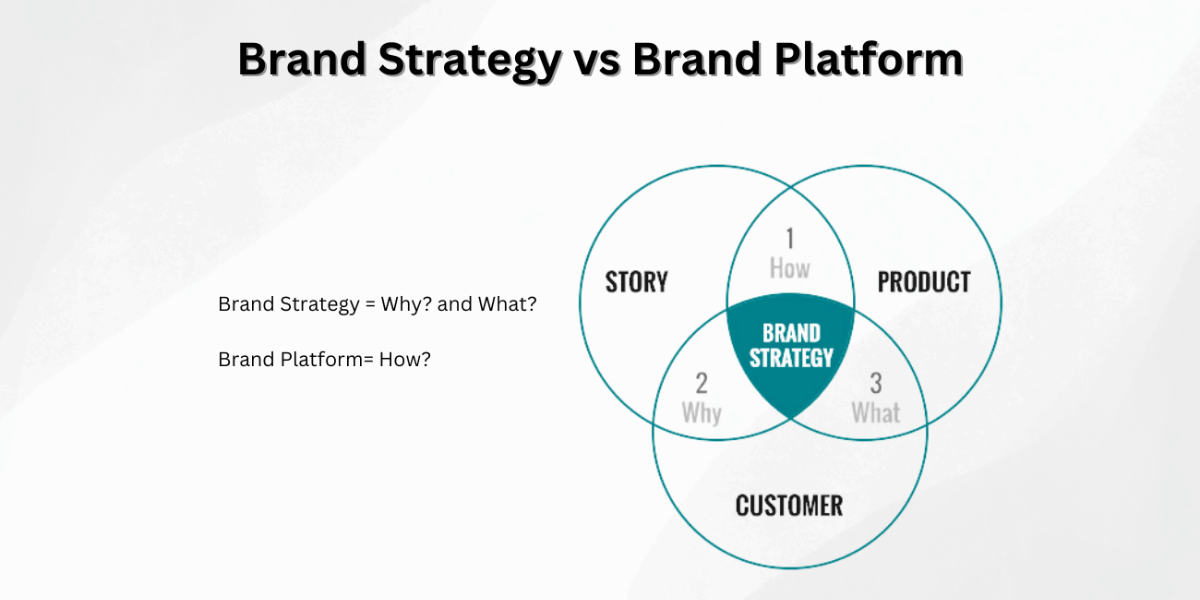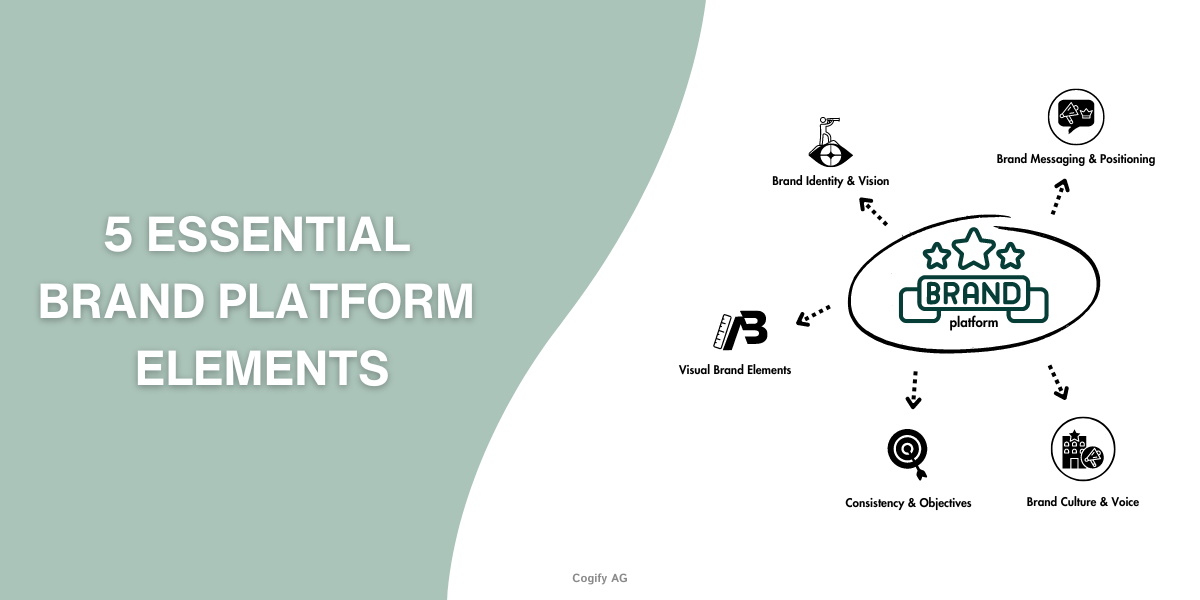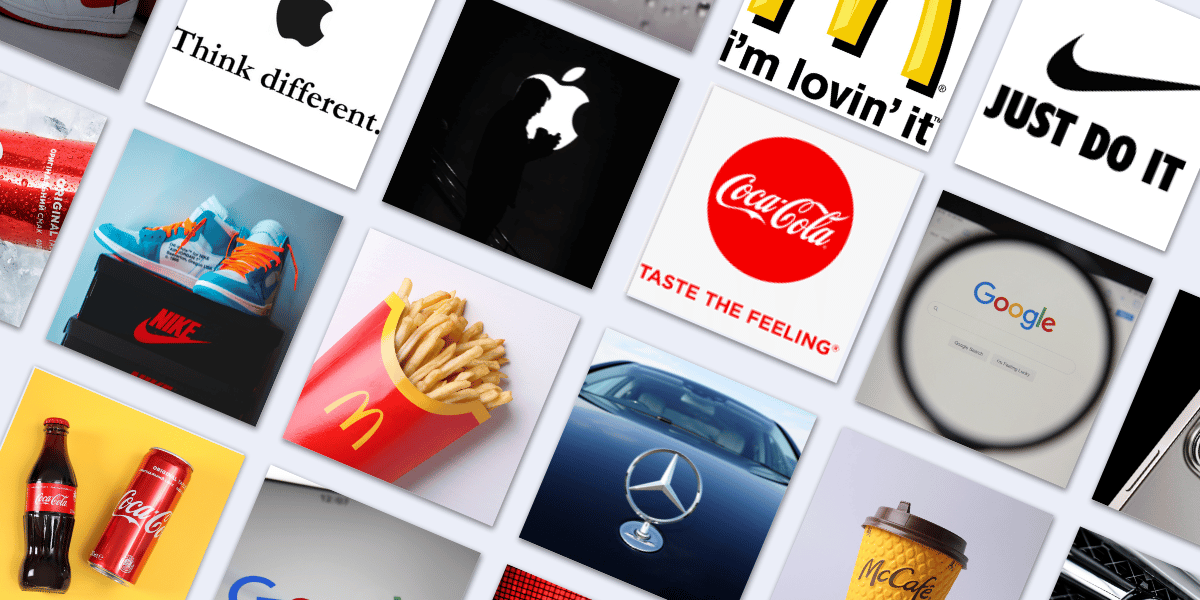Having a catchy tagline or a striking logo isn't enough to make your brand stand out. The real game-changer is your brand's DNA - its unique attributes that define who you are and how you interact with your audience. This is where the power of a strong brand platform comes into play.
Brand Platform is your brand's compass, guiding your messaging and positioning, and shaping the perception of your customers. Having a well-defined brand platform allows you to effectively articulate your unique selling proposition, foster trust and loyalty among your customers, and deliver a consistent brand experience across all touchpoints.
If you're looking to strengthen your brand's identity and resonance, you're in the right place. In this article, we'll explore the key elements of a strong brand platform and the reasons why it's essential for the success of your business. Let’s dive in!

What Is a Brand Platform?
A brand platform is the heartbeat of your brand. It's not just a document but a strategic cornerstone that encapsulates your brand's vision, values, and philosophy. This strategic document serves as a foundation for an organisation's identity, messaging, and visual presentation, guiding all marketing decisions.
The brand platform is a crucial asset for a company, similar to a business plan or yearly forecasting report. It's essentially the DNA of your brand, encompassing everything that makes your brand distinctive. It's not a static document but evolves over time to reflect changes in the company's strategies or market conditions.

Brand Platform vs Brand Strategy
It's important to note that a brand platform and a brand strategy, while interconnected, are not the same thing. The brand platform is the foundation that defines your brand's core values and purpose. It answers the questions 'what' your brand is and 'why' it exists.
On the other hand, brand strategy is the roadmap you follow to express and communicate your brand's unique value proposition. It outlines 'how' you will achieve your brand goals and reach your target audience. In essence, while your brand platform lays out your brand's identity, your brand strategy outlines how to effectively convey this identity to the world.
The Importance of a Strong Brand Platform
A strong brand platform is the foundation upon which your business is built. In today's crowded marketplace, where consumers are bombarded with countless options, having a strong brand platform is essential for standing out and capturing attention.
Strong brand platform shines a spotlight on your unique selling points (USP), making it clear why your brand stands out from the crowd. This clarity attracts customers who align with your values and offerings. Furthermore, brand platform fosters customer trust and loyalty by consistently delivering on promises and effectively communicating your brand's values, leading to more repeat customers. A strong brand platform brings numerous benefits, including:
-
Brand Clarity: It makes your brand's purpose crystal clear, like Coca-Cola's mission to spread happiness.
-
Propositional Cohesion: It ensures all your new strategies and ideas align, keeping your brand message consistent.
-
Brand Salience: It speeds up brand recognition, making your brand top-of-mind like Nike in the sports shoe market.
-
Positive Brand Association: It enables your brand to engage in broader cultural dialogues, fostering positive connections.
-
Brand Loyalty: It helps customers connect with your brand's vision, not just your products, building long-term loyalty.

5 Key Elements of a Brand Platform
-
Brand Identity & Vision: This includes defining brand identity and values, which shape the personality and ethos of your brand. The vision statement articulates your long-term goals, providing a clear direction for your brand's future.
-
Brand Messaging & Positioning: Developing a brand messaging strategy involves creating distinct and compelling narratives that effectively communicate your value proposition. Your brand positioning statement defines your unique market niche, differentiating you from competitors.
-
Visual Brand Elements: Creating a visually appealing brand identity involves designing elements like your logo, color palette, typography, and overall aesthetic that visually represent your brand's identity and values, making your brand instantly recognisable.
-
Consistency & Objectives: Ensuring uniformity across all brand touchpoints provides a cohesive brand experience, reinforcing your brand identity at every customer interaction point. Clear branding objectives guide your brand strategy, ensuring all stakeholders are working towards common goals.
-
Brand Culture & Voice: Core brand values inform both your corporate culture and external communication, shaping how your brand behaves and interacts. The brand voice, reflecting these values, determines the style and tone of your brand communications, influencing how your brand is perceived by its audience.

Brands that Get it Right - The World's Top Brands
Apple
Apple is a master of brand platforms, seamlessly integrating their values of innovation, simplicity, and premium experience into everything they do. The minimalist design of their products, coupled with sleek and modern advertising campaigns, reflect a coherent brand identity. Their messaging and positioning revolve around delivering top-notch, user-friendly technology that enhances life. Apple's brand culture and voice embody a commitment to excellence and a relentless drive for innovation, reinforcing their position as a leader in the tech industry.
Nike
Nike is a brand known for its empowering and inspirational messaging. Their vision is to bring inspiration and innovation to every athlete in the world, and their "Just Do It" slogan perfectly encapsulates this. From visually striking advertisements featuring top athletes to consistent objectives focused on performance and innovation, Nike's brand culture and voice resonate with their active, ambitious target audience.
Coca Cola
Coca Cola's brand platform is centered around happiness and sharing. Their iconic red and white visual elements, along with their signature cursive logo, are recognised worldwide. Coca Cola's messaging and positioning revolve around creating moments of joy, and their brand culture and voice consistently echo this sentiment.
McDonald's
McDonald's brand platform is all about accessibility, consistency, and community. Their "I'm Lovin' It" slogan, together with their golden arches, form a powerful visual and verbal identity globally. Their messaging and positioning revolve around being a fun and friendly place for everyone, and their brand culture and voice reflect this inclusiveness.
Google
Google's brand platform is built on being helpful, innovative, and accessible. Their colorful, playful logo reflects their approachable brand identity. Google's messaging is about making information universally accessible and useful, and their brand culture and voice support this mission.
Mercedes-Benz
Mercedes-Benz stands for luxury, quality, and advanced engineering. Their three-pointed star logo is synonymous with their high standards and prestige. Their messaging and positioning focus on innovation, safety, and sophistication. Mercedes Benz's brand culture and voice consistently communicate these values, reinforcing their reputation as a leader in luxury vehicles.
Harness the Power of a Resilient Brand Platform
The brand platform isn't a one-time initiative; it’s a living, breathing entity that evolves with your business and market trends. As the market landscape shifts and consumer preferences change, remember that your brand platform evolves with your company and the shifting sands of market trends, guiding you through the turbulent waters of branding. In our next blog post, we'll delve deeper into how to build a strong brand platform. We'll provide an insightful guide to help you carve out your unique space in the marketplace. Look it up!
Looking for Expert Guidance on Shaping a Compelling Brand Platform?
That's where we come in. At Cogify, we specialise in building resilient brand platforms that resonate with audiences and drive growth. Reach out to us today and let's start crafting your unique brand story.
Don't just build a brand—build a brand platform that stands the test of time.



